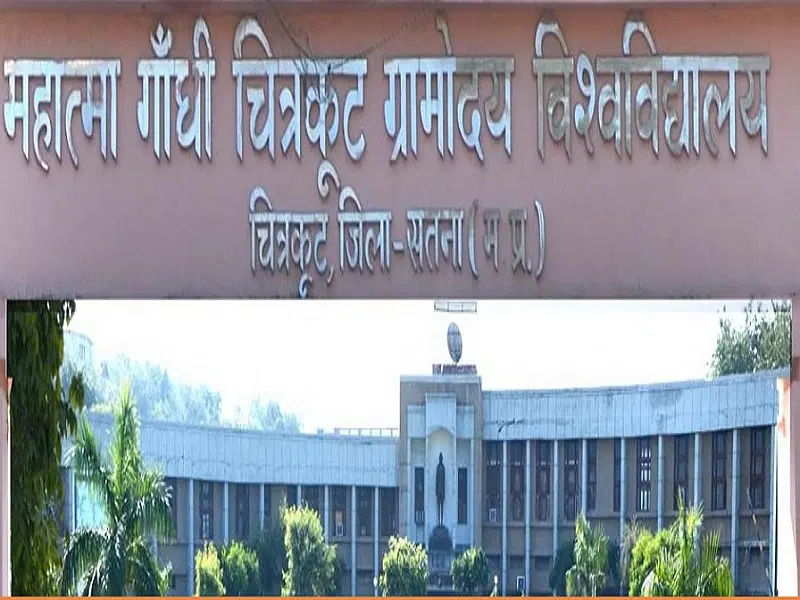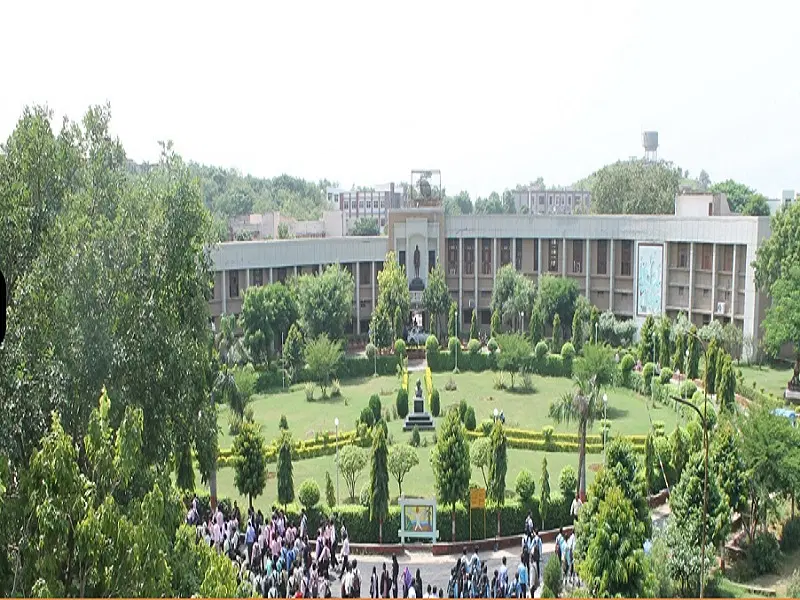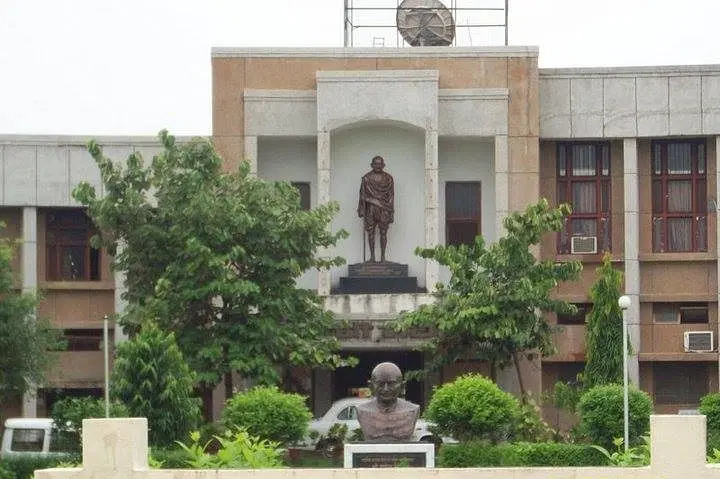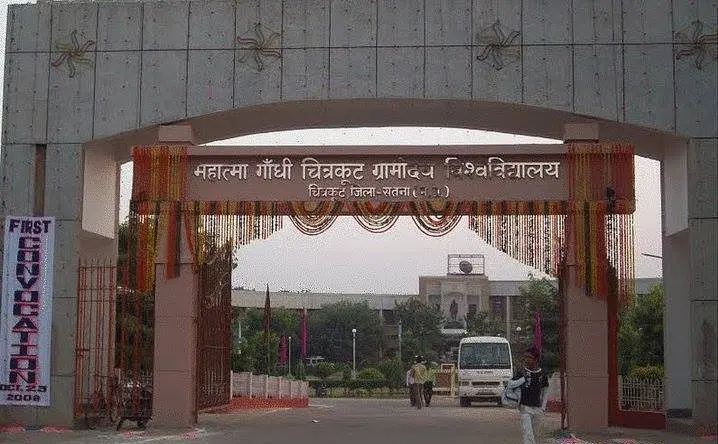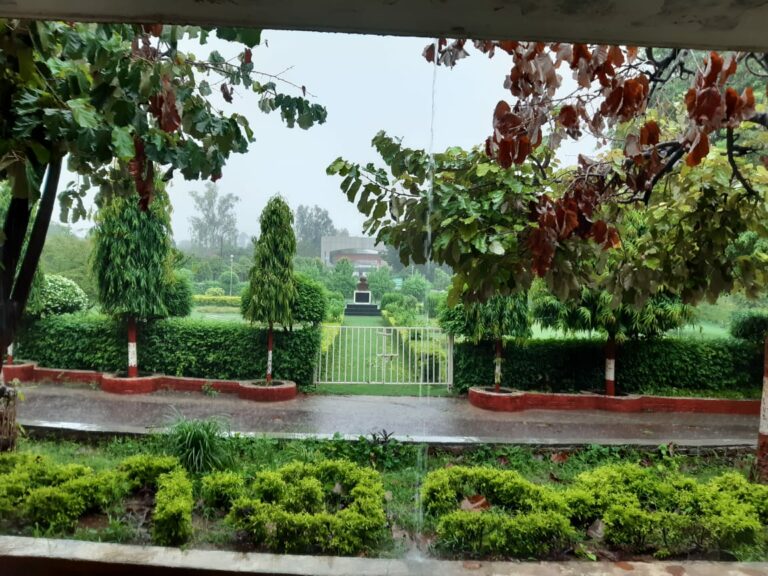collegedetails.in

Concerted efforts of the people have propelled the
country into one of the technologically advanced Nation. But, a large section
of the rural India is still struggling for their survival due to poor infra
structure for education and skill upgradation. It is the fact that more than 80
percent population of the country lives in rural areas. Considering such
situation, Radhakrishan Commission (India’s first education commission) in 1949
had emphasised the need for rural universities in the interest on radical changes
in education. A rural university was therefore conceived and established by the
great Visionary Padma Vibhushan Nana Ji Deshmukh at Chitrakoot named Mahatma
Gandhi Chitrakoot Gramodaya Vishwavidyalaya by the Government of Madhya Pradesh
through legislature by an Act (9, 1991) on February 12, 1991. The University is
located on the bank of holy river Mandakini near Sphatikshila at Chitrakoot,
Satna, M.P. In the year 2015 university accredited as grade “A” by National
Assessment and Accreditation Council (NAAC) in first cycle.
The University is mandated to develop human resource
for the economic and social development of rural people; and develops and
disseminates rural technology. The broad vision of the University is to develop
human resource for promoting activities related to socio-economic development
of rural community and to improve quality of life of deprived masses through
purposeful education in multidimensional field. The University has a mandate to
evolve, promote and impart knowledge and skill to overcome the emerging
challenges, create confidence among the rural community and make the use of
recent advances in the field of higher education for spiritual and social
transformation of rural people.
The message is embedded in the emblem of the
University in the form of ‘Padukas’. The motto of the University is the
village is the universe in miniature. It also focuses on the problem solving
action research and transferring the viable technologies to answer problems
confronted by the rural majority.
In order to carry out its mandate, there are five
faculties and within them are 15 departments and two independent entities-
Distance Education Centre and Community College. Inter- disciplinary approach
has been adopted for multidimensional growth of rural sector through advanced
technology of teaching and learning. The University offers multidisciplinary
higher education courses up to doctoral level in the disciplines of agriculture
and animal sciences,
applied sciences, environment, remote sensing and
GIS, agricultural engineering, food technology, information technology,
management, education, languages, communication, fine arts, humanities,
social sciences etc. Those who are not able to attend regular classes due to
economic or other service commitments, the University has established a good
number of Distance Education Centers in the state of Madhya Pradesh for
imparting higher education. Though the University is unitary in character, yet,
the University has introduced Community College scheme to impart the skill
oriented courses of different levels viz. Advanced Diploma, Diploma and
Certificate programmes through 30 Gramodaya Community Colleges located in
different areas of MP. University have running skill development courses in
many discipline under DDUK. The University has conceived various skill
development courses after due consultation with the stakeholders and the same
is made available to the community Colleges to be adopted in the programmes run
by them. Need based specific programmes are also introduced as per the regional
demand of the community.
Both the top down and bottom-up approaches are used
effectively to implement academic policies. In order to promote skill
education, the University has already introduced B.Voc. programme in nine
streams on the guidelines suggested by National Skill Development council and
further, it has also introduced BSW i.e. Bachelor Degree in Social Work
(Community Leadership) for functionaries of state Govt. agencies for carrying
out Govt. programmes.
This University is the first in the state using 100%
surveillance and thumb impression attendance. Strenuous efforts are on to make
the campus eco-friendly and reduce carbon footprint. Less paper work in office
is in operation, however the thrust is to turn it into paperless e-governance.
Every faculty of the University has maintained smart classes and virtual
classes for interactive teaching. Campus is well equipped with Wi-Fi facility.
The University is mandated to develop
human resource for the economic and social development of rural people; and
develops and disseminates rural technology. The broad vision of the University
is to develop human resource for promoting activities related to socio-economic
development of rural community and to improve quality of life of deprived
masses through purposeful education in multidimensional field. The University
has a mandate to evolve, promote and impart knowledge and skill to overcome the
emerging challenges, create confidence among the rural community and make the
use of recent advances in the field of higher education for spiritual and
social transformation of rural people.
The message is embedded in the emblem of
the University in the form of ‘Padukas’. The motto of the University is
the village is the universe in miniature. It also focuses on the problem
solving action research and transferring the viable technologies to answer
problems confronted by the rural majority.
UG Admission: The admission to the UG courses is based on the entrance test conducted by the university followed by counselling. Selection of candidates in B.Tech Agriculture Engineering is based on PAT followed by counselling.
PG Admission: The admission to all the PG courses is based on the entrance test conducted by the university. Selection of candidates in MBA is based on the entrance exam and counselling conducted by the DTE, MP Govt.
The university has a well-maintained infrastructure and offers all the facilities to its students.


